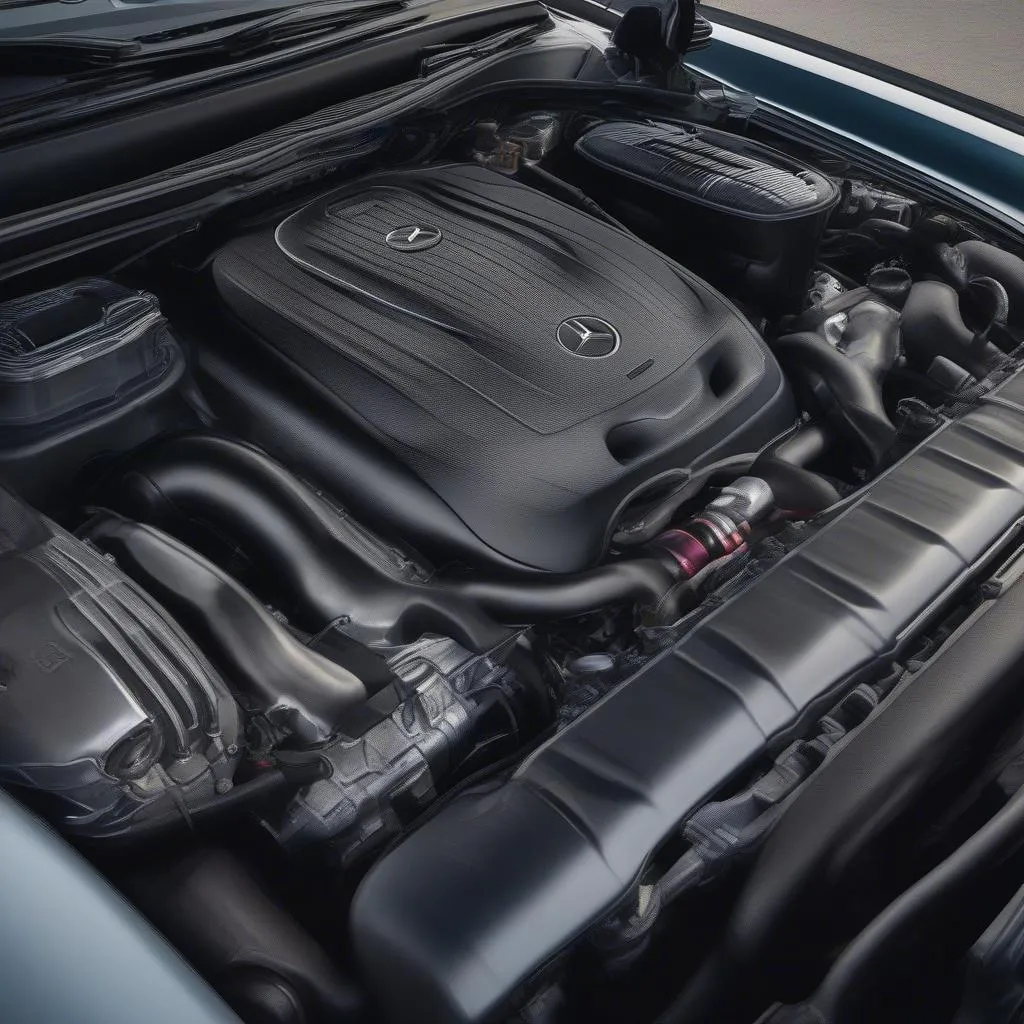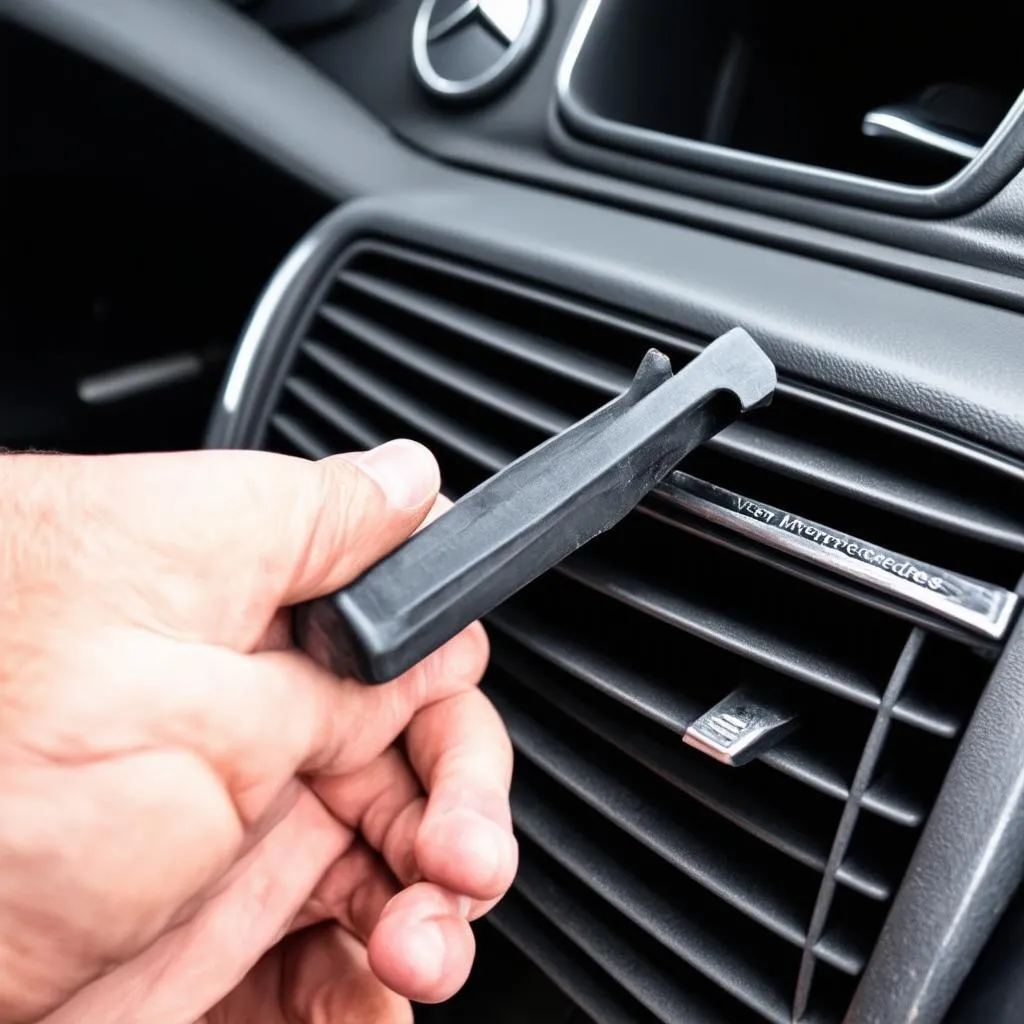Mercedes-Benz vehicles are renowned for their luxury, performance, and engineering. However, like all cars, they require maintenance and occasional repairs. This leads many owners to wonder, “Is it hard to fix a Mercedes?” The answer, like many things automotive, is: it depends. Let’s delve into the factors that can make fixing a Mercedes simple or complex.
What Determines the Difficulty of Mercedes Repair?
Several elements contribute to the perceived difficulty of fixing a Mercedes:
1. The Model and Year
Just like any other car brand, certain Mercedes models are known for their reliability and straightforward repairs. In contrast, others might have more intricate designs or common issues that make them more challenging to work on. For instance, older models might have simpler mechanics, while newer ones are packed with complex technology that demands specialized knowledge.
2. The Specific Problem
A simple brake pad replacement is vastly different from diagnosing an electronic control unit fault. Some repairs are within the realm of a DIY enthusiast, while others necessitate the expertise and specialized equipment of a qualified Mercedes mechanic.
3. Your Skill Level and Experience
Your own mechanical aptitude plays a significant role. If you’re comfortable with basic car maintenance and have a well-equipped toolbox, you might handle simpler repairs. However, intricate electrical systems, engine internals, or transmission work often require the skills of a professional.
 Mercedes Engine Bay
Mercedes Engine Bay
When to DIY and When to Call a Pro
Here’s a simple guideline to help you decide:
DIY Possibilities:
- Basic Maintenance: Fluid changes (oil, coolant, brake fluid), air filter replacement, cabin filter replacement, and battery replacement are often manageable for DIYers.
- Simple Component Replacements: Replacing headlights, taillights, fuses, or even a worn-out alternator can be doable with some mechanical know-how.
Professional Territory:
- Warning Lights: Engine, transmission, ABS, or airbag warning lights usually signal complex electronic issues requiring diagnostic tools.
- Major Engine or Transmission Work: Internal engine repairs, transmission rebuilds, or complex electrical diagnoses are best left to trained professionals.
- Safety Systems: Working on airbags, seatbelts, or other safety-critical components demands specialized knowledge and should only be performed by certified technicians.
 Mercedes Mechanic Diagnosis
Mercedes Mechanic Diagnosis
Tips for Easier Mercedes Repairs
- Invest in a Quality Diagnostic Tool: Even if you’re comfortable with DIY repairs, a good diagnostic scanner tailored for Mercedes vehicles can save you time and frustration by pinpointing issues.
- Consult Your Owner’s Manual: Your owner’s manual is a treasure trove of information, including recommended maintenance schedules and specific instructions for your model.
- Utilize Online Resources: Forums dedicated to Mercedes-Benz ownership are invaluable. You can find detailed guides, troubleshooting tips, and connect with other owners who have encountered similar problems.
FAQs about Fixing a Mercedes
Q: Are Mercedes parts more expensive?
A: Generally, yes. Mercedes-Benz parts can be pricier than those for some other car brands, reflecting their luxury status and often higher-quality materials.
Q: Can I use aftermarket parts on my Mercedes?
A: While aftermarket options might be tempting for their lower cost, using genuine Mercedes parts is generally recommended, especially for critical components. This helps ensure compatibility, quality, and can protect your warranty.
Q: How often does my Mercedes need service?
A: Mercedes-Benz vehicles typically have a service indicator that will notify you of required maintenance. However, it’s generally recommended to have an oil change at least annually or every 10,000 miles, whichever comes first.
Q: What is Cardiagtech and how can it help me?
A: CARDIAGTECH offers a range of professional-grade automotive diagnostic tools and resources that can be particularly helpful for Mercedes owners. Their products can help you identify and potentially resolve issues yourself, saving you a trip to the mechanic for basic diagnoses. Learn more about Cardiagtech products here.
Conclusion
So, is it hard to fix a Mercedes? It depends on the complexity of the repair, the specific model, and your own mechanical proficiency. While simple maintenance tasks can be tackled by DIY enthusiasts, complex issues are best left to the expertise of qualified Mercedes mechanics. Remember, investing in quality tools, consulting resources, and understanding your limits can make all the difference in your Mercedes ownership experience.


